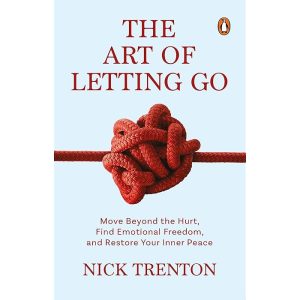Description
The “Let Them Theory” is not a widely recognized or established concept in mainstream philosophy, psychology, or social sciences, so it’s likely that you are referring to a specific idea, interpretation, or framework that either has a niche audience or is based on a particular person’s philosophy. If you could provide more context, I can give a more tailored response.
However, based on the name, the “Let Them Theory” could conceptually be interpreted in various ways:
### 1. **The Theory of Allowing Autonomy**:
It might refer to the idea of allowing individuals or groups to make their own choices and decisions without unnecessary interference. This aligns with libertarian principles or philosophies emphasizing personal freedom and autonomy. The idea could be that, by letting people “be themselves,” they are more likely to grow, learn, and reach their potential, rather than being controlled or micromanaged.
### 2. **Let Them Fail**:
In some educational or leadership contexts, the “Let Them Theory” could be a philosophy of letting people (particularly students, employees, or children) experience failure in order to learn from their mistakes. It may argue that failure is an essential part of growth, and by stepping back and letting people struggle, we can teach resilience, problem-solving, and self-reliance. This idea is often discussed in contrast to overprotectiveness or micromanagement.
### 3. **Social or Political Theory**:
The phrase “Let them” could also be seen in the context of broader social or political theories. For instance, it could be a call for society to “let” different groups, identities, or cultures thrive in their own way without oppression or discrimination. This could align with ideas of pluralism, tolerance, or even “hands-off” governance, where the state or society doesn’t impose overly strict norms or policies on personal behaviors, choices, or lifestyles.
### 4. **A Psychological or Philosophical Stance**:
In more abstract philosophical terms, “Let them” could express a form of stoicism or existentialism where individuals are encouraged to accept life as it is, including the suffering and unpredictability inherent to existence. From this perspective, it’s about allowing people to encounter and deal with life’s challenges without interference, trusting that individuals will make sense of things on their own.
—





Reviews
There are no reviews yet.